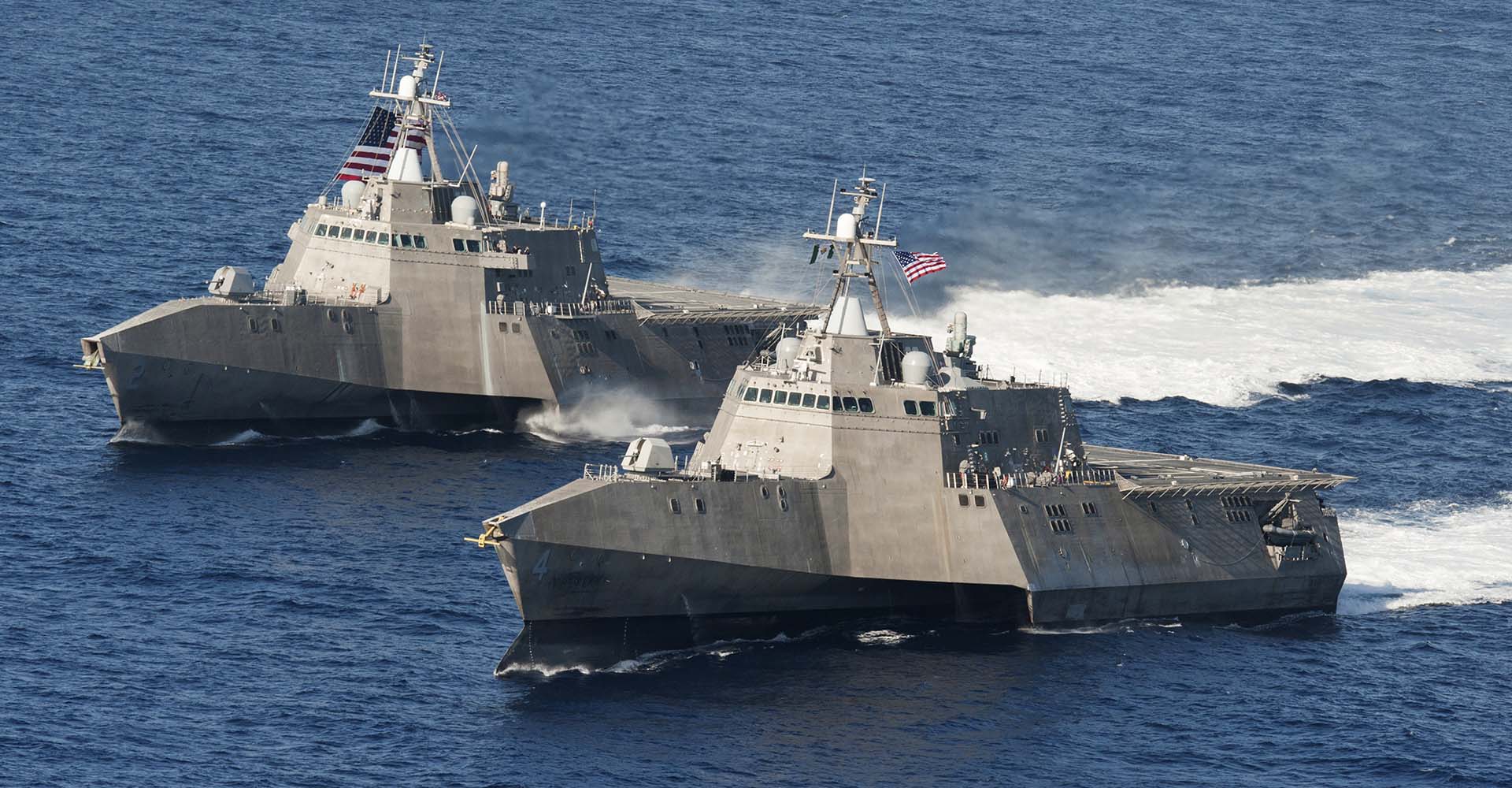Littoral Combat Ship: the little vessel that couldn’t

Littoral combat ships USS Independence (LCS 2), back, and USS Coronado (LCS 4) underway in the Pacific Ocean. Photo credit: U.S. Navy photo by Chief Mass Communication Specialist Keith DeVinney.
The last few months have not been kind to one of the U.S. military’s most high-profile projects, the Navy’s Littoral Combat Ship (LCS).
Earlier this month, the Navy announced a wide-ranging overhaul of the way the LCS fleet operates. The reason is simple: when sent out to sea, the LCSes have shown a disturbing tendency to break down in catastrophic fashion.
Of the seven LCS-class ships currently commissioned, five have suffered major breakdowns within the last twelve months:
- USS Milwaukee (LCS-5), commissioned into active service on November 21, 2015, suffered an engine failure on her maiden cruise twenty days later that left her having to be towed back into port.
- USS Fort Worth (LCS-3), commissioned in 2012, blew a propulsion gear while sailing off Singapore in January, requiring it to limp back to San Diego at reduced speed for repairs.
- USS Freedom (LCS-1), commissioned in 2008, rusted one of her engines out in July when a faulty seal let seawater leak in while she participated in the biennial Rim of the Pacific (RIMPAC) exercise in the Eastern Pacific.
- USS Coronado (LCS-4), commissioned in 2014, suffered an “engineering casualty” in August that forced her to cut short an independent deployment and return to port at Pearl Harbor.
- USS Montgomery (LCS-8), commissioned on September 10, suffered two breakdowns within three days of leaving port, forcing her to put in at Guantanamo Bay for repairs.
Everything you need to know about the level of confidence the Navy has in the LCS fleet currently can be summarized by one fact: as part of the just-announced overhaul, the first four LCSes will be pulled back from active service and reclassified as training vessels.
Even by the abysmal standards of American defense contracting, this is bad enough to be worthy of note. These are (in some cases literally!) brand new ships. You would not normally expect them to be breaking down like Ford Pintos.
So what happened?
The short answer is, a lot. The LCS program has been a train wreck from the outset. If you want the gory details, Wired ran a good summary of all the ways the program had gone off the rails a few years ago. But if you want a short version, just take this video and replace every mention of “Bradley Fighting Vehicle” with “Littoral Combat Ship,” and you’ll have the general gist.
At this point, the LCS is a ship without a mission, that can’t be counted on to perform reliably, whose survivability under fire is an open question….
… so naturally, the Navy wants to buy 40 more of them. At $360 million a pop.
Sigh.
